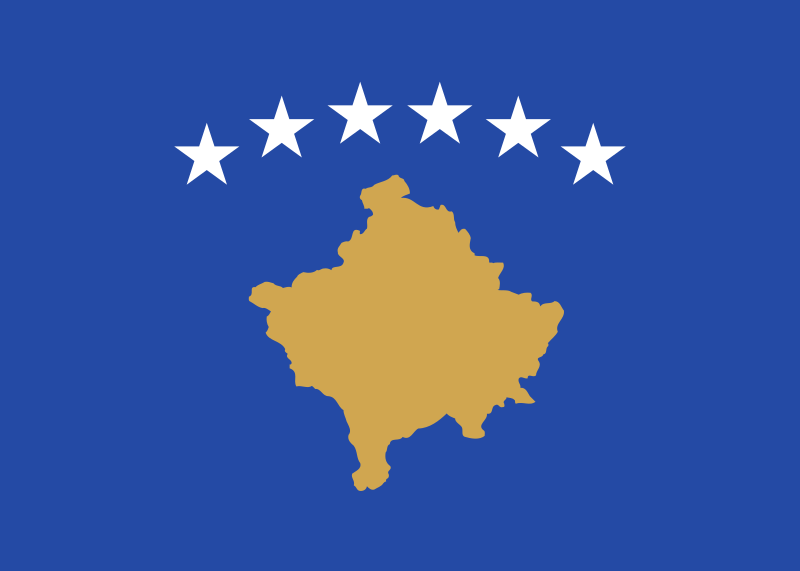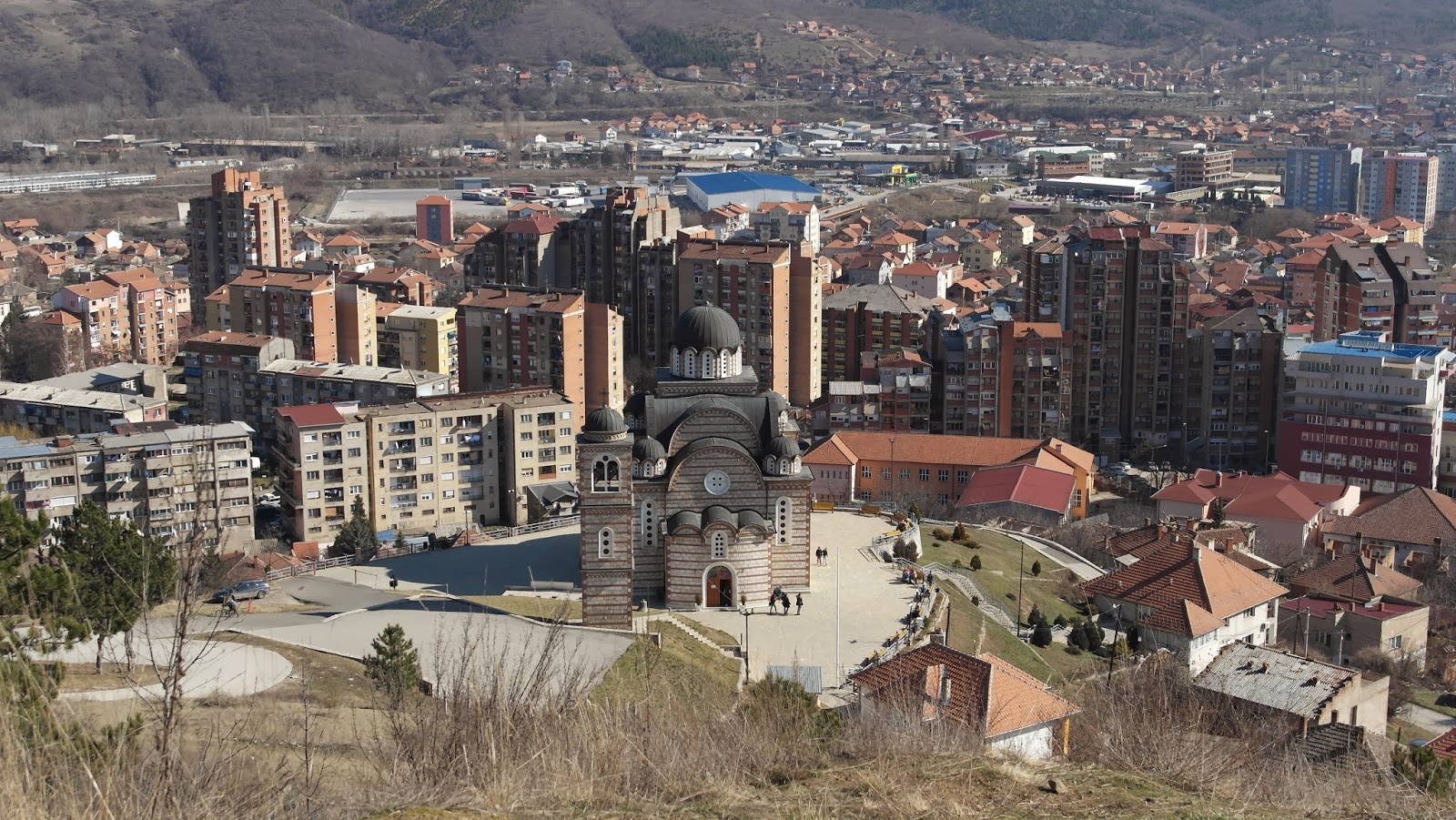Roughly one week ago, I started a new phase in my life: I enrolled as an EVS (European Voluntary Services) participant to the
Balkan Sunflowers an award-winning non-governmental organization based in Pristina, The Colony aka Kosovo. Those not so aware about this region might wonder why I call this country "The Colony". Just sit for a coffee and look out of the window: I swear you will see at least a couple of
EULEX SUVs speeding on the streets and
KFOR guys from various countries patrolling around. In every street corner, there is an office belonging to one of the many branches of EU, UN, NATO, EC, CoE, OSCE... During my time in Tirana, it was extremely rare to hear English in any public place; here, you cannot sit in a restaurant or coffee shop without hearing the conversations of some American wannabe world-saviours. Perhaps the fragile independence of The Colony is best exemplified by their flag (image courtesy to Wikipedia.org:
 |
| What does this resemble to you? |
A perfect flag to illustrate the situation (image courtesy to Uncyclopedia.wikia.com. I could never have believed that I would use Uncyclopedia as a source in two subsequent blog postings!)
 |
The Colony of the USA, Albania and Serbia. Only one thing is missing but nevermind,
it is already included in the "national flag" above. |
Anyway: as I have said many times before, in order to become a professional world savior, I must be prepared to go through dozens and dozens of internships, voluntary placements, work trials... At worst case, one is offered an internship in a prestigious UN office at London, but with absolutely no pay, no even reimbursement for a small cup of disgusting filter coffee. Luckily, my situation is not so bad. I am grateful that being an EVS volunteer, I get food and accommodation paid, and on the top of that, I even get some pocket money! Yay!
Yet, perhaps the best thing in my volunteering placement with the Balkan Sunflowers is the opportunity to apply my passion for social research. Even better, what I am currently conducting is basically
action research, i.e. research for policy and advocacy purposes. As a over-enthusiastic former student of social sciences, I don't mind conducting research on topics such as
A critical appraisal to the currently prevalent epistemology of intersectionalities among the post-positivist feminist approach to recuperation and reconciliation in a South-West Herzegovinian beekeeper community. However,
as I wrote before, while aforementioned kind of research is always fun to do, we may have do wait for a while (a few decades...) before these findings will reach the big masses and the policymakers.
Currently, I am involved in a couple of research projects canvassing the health and educational needs of the Romani, Ashkali and Egyptian communities of The Colony. While life in The Colony is hard for everyone (except for politicians, war profiteers and oligharcs), life is especially hard for the peoples of these three marginalized and discriminated communities. I hope that with our forthcoming research findings will be helpful towards achieving a small but remarkable step in the process of integrating the Roma, Ashkali and Egyptian communities in the wider society of The Colony. This is what I really like: conducting research with a purpose, with a purpose that is likely to result in concrete and visible outcomes.
I will continue this blog by writing about my experiences as an EVS volunteer in The Colony: what I'm doing, what I've achieved, how I feel about all this. Besides, I will keep on writing about my applications for jobs, for internships, for PhD positions... I'm very, very likely to write tons of them (literally). But not yet - now that I've just started this volunteering placement, I deserve a small break from "Your application was very convincing but..."
 |
| Feeling part of the team with my very own teacup! |








